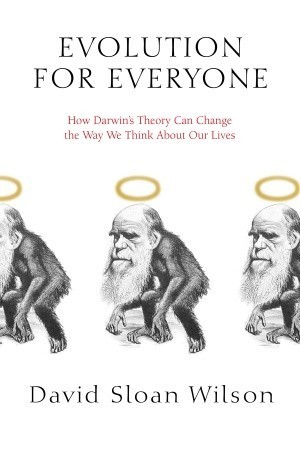
Everything You Know Is Wrong, Book One: Human Origins
Book Description
What if everything you've been told about human origins is a lie? In "Everything You Know Is Wrong, Book One: Human Origins," Lloyd Pye exposes shocking truths that challenge the limits of conventional science. Delve into a riveting exploration of enigmatic artifacts, ancient mysteries, and the profound questions surrounding our existence. As evidence unfolds, the stability of accepted history trembles, revealing a hidden narrative that could redefine humanity's roots. Each revelation draws readers deeper into a web of intrigue and controversy. Are we ready to confront the unsettling possibilities of our true beginnings?
Quick Book Summary
"Everything You Know Is Wrong, Book One: Human Origins" by Lloyd Pye is a controversial examination of the mainstream narratives regarding humanity’s beginnings. Pye challenges established scientific, historical, and religious explanations, arguing that much of what we accept as fact is misleading or incomplete. Through detailed discussion of anthropological anomalies, enigmatic artifacts, and unexplained evidence, he suggests that the conventional story of human evolution fails to answer critical questions about our origins. Pye explores alternative theories — including interventionist hypotheses — that imply humanity’s existence is the result of influences not acknowledged by traditional science. His aim is to provoke readers into questioning deeply-rooted assumptions and to explore the possibility that humanity’s true history is far more mysterious and complex than widely believed.
Summary of Key Ideas
Table of Contents
Questioning the Established Human Origin Narrative
The book opens by questioning the conventional wisdom surrounding human origins. Pye asserts that widely accepted narratives taught in science, religion, and education are built on selective evidence and flawed reasoning. By dissecting the foundations of these mainstream beliefs, the author establishes the premise that much of what we regard as settled fact about evolution and human history is, in fact, open to reinterpretation. He challenges readers to set aside ingrained assumptions and to approach the subject with open-minded skepticism, emphasizing the importance of critical thinking.
Analyzing Anomalies in the Fossil Record and Artifacts
A major focus of the work is on the many anomalies and inconsistencies found in the fossil record. Pye highlights fossils and artifacts whose age, morphology, or complexity do not fit established evolutionary timelines. He discusses examples such as out-of-place bones, advanced ancient tools, and other archaeological finds that defy tidy categorization. These puzzles, Pye argues, demonstrate the need to revisit and possibly revise the standard evolutionary paradigm. He contends that mainstream science often dismisses or ignores such evidence, creating blind spots in our understanding.
Critiquing Evolutionary Theory and Its Limits
The book further scrutinizes the prevailing theories of evolution, particularly the Darwinian model. Pye critiques natural selection and random mutation as insufficient explanations for the rapid and complex development of Homo sapiens. He points out gaps such as the sudden appearance of modern traits, unexplained leaps in cranial capacity, and the lack of plausible transitional forms. Through detailed argumentation, Pye suggests that the classic evolutionary model may be unable to fully account for the origin and uniqueness of modern humans.
Exploring Intervention Hypotheses and Alternative Explanations
Central to Pye's thesis is the exploration of alternative hypotheses, including the idea of external intervention in human development. Citing ancient myths, diverse cultural stories, and speculative evidence, he proposes that humanity may have origins beyond natural evolutionary processes—potentially involving advanced beings or unknown influences. This interventionist perspective is presented not as established fact but as a plausible addition to the conversation on human ancestry. Pye encourages the investigation of these controversial possibilities rather than dismissing them out of hand.
The Impact of Hidden or Suppressed Evidence
The work concludes by discussing the implications of hidden or suppressed evidence for our understanding of the past. Pye examines how academic inertia, cultural biases, and institutional agendas can shape what is accepted or rejected as historical truth. He calls for greater transparency, openness to unconventional data, and a willingness to revisit and revise our species’ origin story. Through this lens, the book not only questions existing paradigms but also advocates for a more inclusive and critical approach to scientific inquiry.
Download This Summary
Get a free PDF of this summary instantly — no email required.





